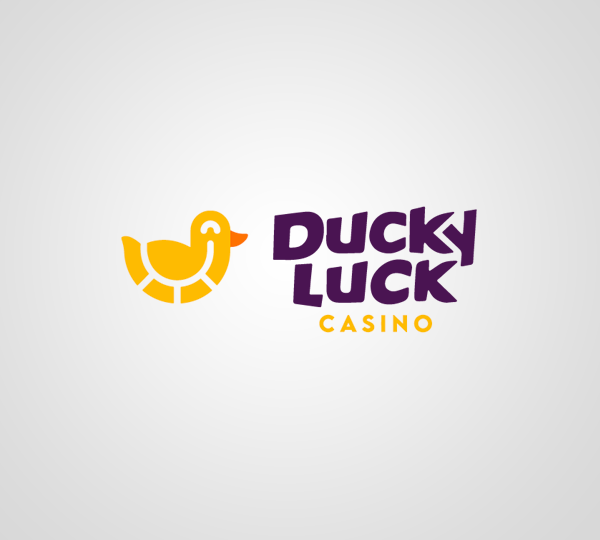RESPONSIBLE GAMBLING
For most people, a night at the casino is a fun way to test their luck and hopefully, walk away a winner. However, for some people, gambling becomes an impulsive addiction that causes significant problems and distress.
When someone suffers from gambling addiction (GA), they crave gambling the same way a person with alcoholism craves alcohol. GA can cause financial distress, put a significant strain on personal relationships and cause issues in the workplace.
Those who suffer from GA typically hide or lie about their behavior. They may turn to other people for help with their financial issues caused by their GA.
Some people with GA are looking for excitement, while others are looking for an escape from their day-to-day life.
GA is a complex disorder, and there’s no easy cure. However, it’s important to understand the causes, signs and steps to take to prevent GA.
GA CAUSES
Gambling addiction can develop for a number of reasons, but the three primary causes include:
- Biological Reasons
If members of your family have a gambling addiction or struggle with addiction in general, you may be at a higher risk of developing GA.
Genetics may play a role in the development of this addiction. Some people enjoy gambling more than others. For some, it’s a thrilling experience that’s difficult to resist. The excitement of a big win can drive many people into addiction.
Additionally, some people may naturally have a difficult time resisting certain impulses. Genetic vulnerability puts them at a greater risk of developing any kind of addiction.
In addition to genetic vulnerability, some individuals may be more susceptible to GA because they have family members or friends engaging in this behavior. Humans have a fundamental need for social interaction and acceptance. In this way, genetics influences behavior and the development of GA. When friends or family are gambling, you are tempted to mimic this behavior to fit in and socialize with these loved ones.
- The Availability of Gambling
Those who live in close vicinity to casinos have easy access to gambling activities, which increases the risk of developing GA.
Those who live several hours away from a casino are less likely to engage in this behavior, although the development of online gambling has made it easier than ever to play.
- Personality Factor
Thrill seekers may be at a greater risk of developing gambling addiction, but those who have poor coping skills are also more vulnerable to GA.
The adrenaline rush and excitement of gambling can be all too tempting for some personalities. These are individuals who are constantly seeking out the next big thrill or the euphoria of winning.
For others, gambling is a way to cope with unpleasant emotions or life circumstances. These individuals have poor coping skills, so gambling becomes an outlet and a way to escape negative feelings and situations.
SIGNS/SYMPTOMS OF GAMBLING ADDICTION
Because gamblers tend to hide their behavior, it’s not always easy to spot the signs and symptoms of GA. With that said, gamblers often exhibit many of the same behaviors and symptoms that other addicts exhibit.
Some of the most common signs of gambling addiction include:
Neglect of Other Aspects of Life
When someone suffers from a gambling addiction, gambling becomes the only thing they care about. All other aspects of life are neglected in favor of finding new opportunities for gambling.
GA can cause a person to:
- Be late for or not show up to work
- Neglect basic hygiene and selfcare
- Avoid spending time with family
- Neglect friends
- Give up his/her social life
If you or someone you love is neglecting all other aspects of life, GA or another addiction may be the cause.
Keeping This Simple Activity a Secret
As mentioned previously, those who suffer from gambling addiction often try to hide their behavior and addiction. They may lie to friends and family about where they’re going and what they’re doing. They may say that they’re:
- Working late
- Going on business trips
- Helping friends
- Working on projects
Why hide such a simple activity? Because those who suffer with GA feel ashamed of their behavior and fear ridicule or judgement from their loved ones. To avoid confronting the truth or having to deal with their addiction, they keep their gambling habit a secret from others.
Whether the gambling takes place in a physical casino or online, those who suffer with G““`A will go to great lengths to hide their behavior from the people they love.
Making Money in This Way
Another sign of GA is if the individual is making money through gambling. Maybe they’ve quit their job to spend their days at the casino, or they’re relying on their winnings to make ends meet.
If someone is making a living through gambling, they may be suffering from a gambling addiction.
Borrowing Money to Spin Slots, Thinking That “Gambling is the Only Joy”
One of the telltale signs of a GA is borrowing money to gamble and feeling that gambling is the only real joy in life.
Those who suffer from GA often face financial difficulties because of their addiction. Part of the allure of gambling is hitting the jackpot or walking away with big winnings. It’s the thrill of the win that drives many gamblers to continue placing bets or spinning slots even though they are dwindling their money away.
To satisfy the need and compulsion to continue gambling, those suffering from GA may borrow money from friends, coworkers and others when they no longer have the money to game.
All Thoughts on Gambling
Those who suffer from GA spend a great deal of time thinking, fantasizing and daydreaming about gambling. Their lives and thoughts revolve around gambling. Those suffering from GA are unable to stop these thoughts or their gambling behavior.
If someone is suffering from a gambling addiction, he/she may:
- Exhibit secretive behavior and have unexplained absences from work or social events
- Spend an extensive amount of time performing simple tasks
- Take an unusual number of sick days or vacation days
- Spend more and more time gambling
Secretive About Finances
There are several financial warning signs associated with GA, and one of the biggest red flags is being secretive about finances.
Those who are suffering with a gambling addiction may:
- Take out secret loans
- Be secretive about financial records and pay stubs
- Have several loans out at one time
If someone has a problem with gambling, there may be:
- Money missing from bank accounts and wallets
- Valuables missing
- Household items missing
- Unpaid bills
Those who suffer from GA are very secretive about their behavior and go to great lengths to hide the financial consequences of their gambling.
Abnormal Behavior and Mood
Those who have a problem with gambling often exhibit noticeable emotional and behavioral symptoms, which may include:
- Being withdrawn from family and friends
- Changes to sleeping and eating patterns
- Anxiety, depression and suicidal thoughts
- Controlling or manipulative behavior
- Feelings of worry or agitation for no obvious reason
- Poor work performance
It’s not always easy to spot the signs of gambling addiction because those who suffer with it hide their behavior and the emotional effects of the addiction.
GAMBLING ADDICTION PHASES
Like any other addiction, GA develops in stages. Some people move through these stages very quickly, while others take years to reach the final stage.
- The Phase of Becoming Dependent
The first phase is also called the “winning phase,” and it typically starts with a big win. The euphoria and excitement of the win creates a positive view of gambling. In many cases, those who develop a gambling addiction often start out believing that they have a natural talent for gambling and that more big wins will be in their future.
The thrill and excitement of the first win leads the person to spend greater amounts of time on gambling.
- Losing Phase
As the addiction progresses, the person becomes increasingly preoccupied with gambling. They gamble alone, they start borrowing money, they call out of work, and they lie to friends and family about where they’re going or what they’re doing. During this phase, the person may start chasing their losses in hopes of that one big win that will make up for it all.
- Phase of Despair
At its peak, gambling addiction causes the person to lose all control of their gambling behavior. They can’t stop gambling, even though they feel ashamed and guilty afterwards.
At the same time, the consequences of the addiction catch up with them. They may lose their jobs, lose relationships or even lose their homes. In extreme cases, some gambling addicts are arrested for engaging in illegal activities related to their gambling habit.
- Feeling Hopeless
In the hopeless phase, gamblers reach rock bottom. They don’t believe that it’s possible to get help, and they don’t care whether they live or die. Some may also develop a drug or alcohol addiction during this phase.
GAMING TIPS
Gambling can be a fun and exciting activity that doesn’t lead to an addiction. Here are some tips to help you enjoy gaming without becoming dependent on this activity.
Treat Gambling and Casinos as Entertainment
Treat gaming as entertainment not a way to make money. Remember that casinos, whether online or in person, are designed to make money. They’re not designed to lose money to big winners.
Think of gambling as an entertaining activity like dinner or a movie.
Only Play with Money You Can Afford to Lose
Only gamble with money that you can afford to lose. Don’t use money that you need for rent, utilities, food and other essentials.
Use money in your entertainment budget for gambling.
Never Play While Intoxicated
Drugs and alcohol impair your judgement, making it difficult to control your behavior and gamble responsibly. Control and good judgement are your first and last lines of defense against gambling addiction.
Don’t Play for Too Long
It may be tempting to spend a weekend gambling and enjoying the excitement of casinos. However, it’s important to put a time limit on your gaming. Limiting your gambling will help prevent major losses that can make it tempting to keep going.
Don’t Chase Your Losses
Setting limits on how much you spend on gambling will help prevent significant losses and addiction. But if you set a limit and then try to win back some of your losses before you leave, you’re not really putting a limit on your gambling.
Chasing losses typically results in increasingly bigger losses.
PREVENTATIVE MEASURES: HOW TO PROTECT YOURSELF
Prevention is the key to avoiding a gambling addiction. There are several preventative steps you can take to protect yourself, including:
Pass the NODS Self-Assessment Test
For assistance in identifying whether to modify or seek help for your gambling behaviour, you can complete the NODS Self-Assessment in order to more impartially assess and better understand your current levels of play.
Set a Timeout Inside the Casino
Whether you’re gambling online or in a physical casino, it’s important to take frequent breaks. It’s easy to get caught up in the excitement of gambling and lose track of time. Taking breaks will help you shift your focus and get back on the right track.
Set Deposit Limits
Many online gambling sites allow you to set deposit limits, so you don’t spend more or lose more than you should. Remember to treat gambling as entertainment, and only spend your entertainment budget.
Set Limits on Losing
Setting deposit limits can help limit your losses, but if there is no option to do this, you can set your own limits on losing. Be firm with yourself. Once you reach that limit, call it quits.
Unsubscribe from Mailing Lists
Are you subscribed to online casino mailing lists? You may be tempted to play each time a promotional email lands in your inbox.
Unsubscribing from these mailing lists will help you stay focused on work, family and other healthy activities.
Write to Support and Ask for Your Account to be Locked
If you find yourself spending more time than you should gambling online, you can write to the website’s support team and request that your account be locked.
Locking your account will keep you from making deposits and gaming.
Engage in Other Activities
Balance gambling with other activities to keep it from becoming your primary hobby. Finding other outlets and activities that bring you joy will help prevent an unhealthy dependence on gambling.
Click on a “panic bottom”
In a case if you feel that you’re becoming gambling addicted – you should click on a “panic button” that enables immediate exclusion from the game for 24 hours
RESPONSIBILITY OF GAMING COMPANIES
Gaming companies do have a responsibility to ensure ethical and responsible gaming.
- Casinos should not take advantage of and prey on players with gambling addictions.
- Players should have the option to delete their accounts.
- Players should be able to set maximum bet limits and time limits.
- Gaming companies should provide a self-test for gaming addiction.
JUVENILE PROTECTION
Young adults are just as vulnerable to gaming addiction as adults. Minors who have “protective factors” in their lives are less likely to develop a gambling addiction. These protective factors include:
- Positive outlook
- Support network of family, friends and school
- High self-esteem
- Realistic expectations and boundaries
- Constructive use of time
- Excellent problem-solving skills
Young adults with reliable support networks and healthy coping mechanisms are less likely to develop a gambling addiction.
HOW TO GET HELP WITH GAMING ADDICTION. GA HELP INSTITUTIONS
If you believe that you have a problem with gambling, you’re not alone. Millions of people all over the world struggle with gambling addiction. There is help out there. Several organizations help people who are battling gambling addictions, including:
Gamblers Anonymous
Gamblers Anonymous (GA) is a twelve-step program for people who have a gambling problem. It is modeled after Alcoholics Anonymous, since both programs use a 12-step model.
The only requirement for membership is a desire to stop gambling. Here is more links to Gamblers Anonymous programs in different countries:
Gamblers Anonymous USA (in English)
Gamblers Anonymous UK (in English)
Gamblers Anonymous Toronto/Canada (in English)
Gamblers Anonymous Ireland (in English)
Gamblers Anonymous Scotland (in English)
Gamblers Anonymous in Finland (in Finnish)



